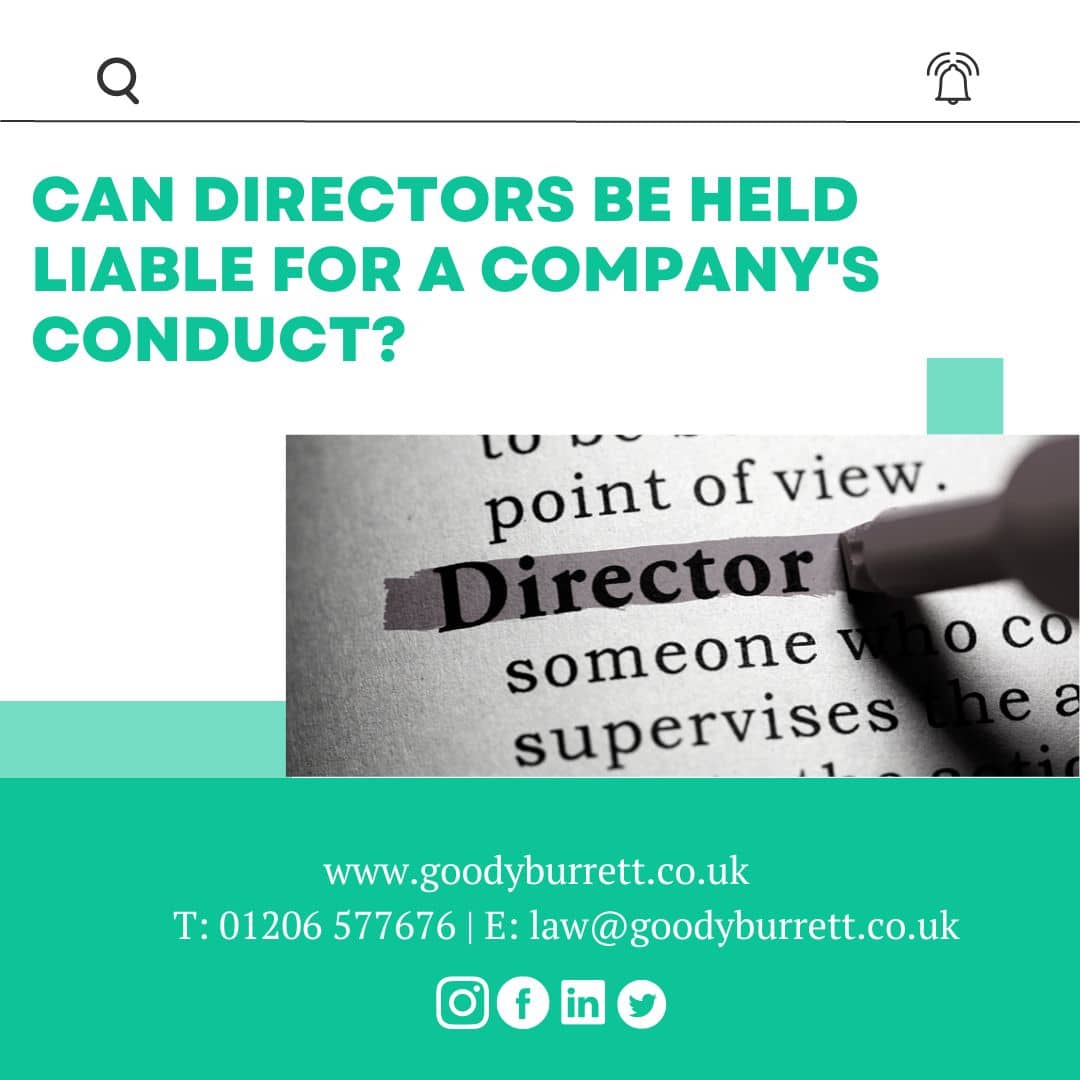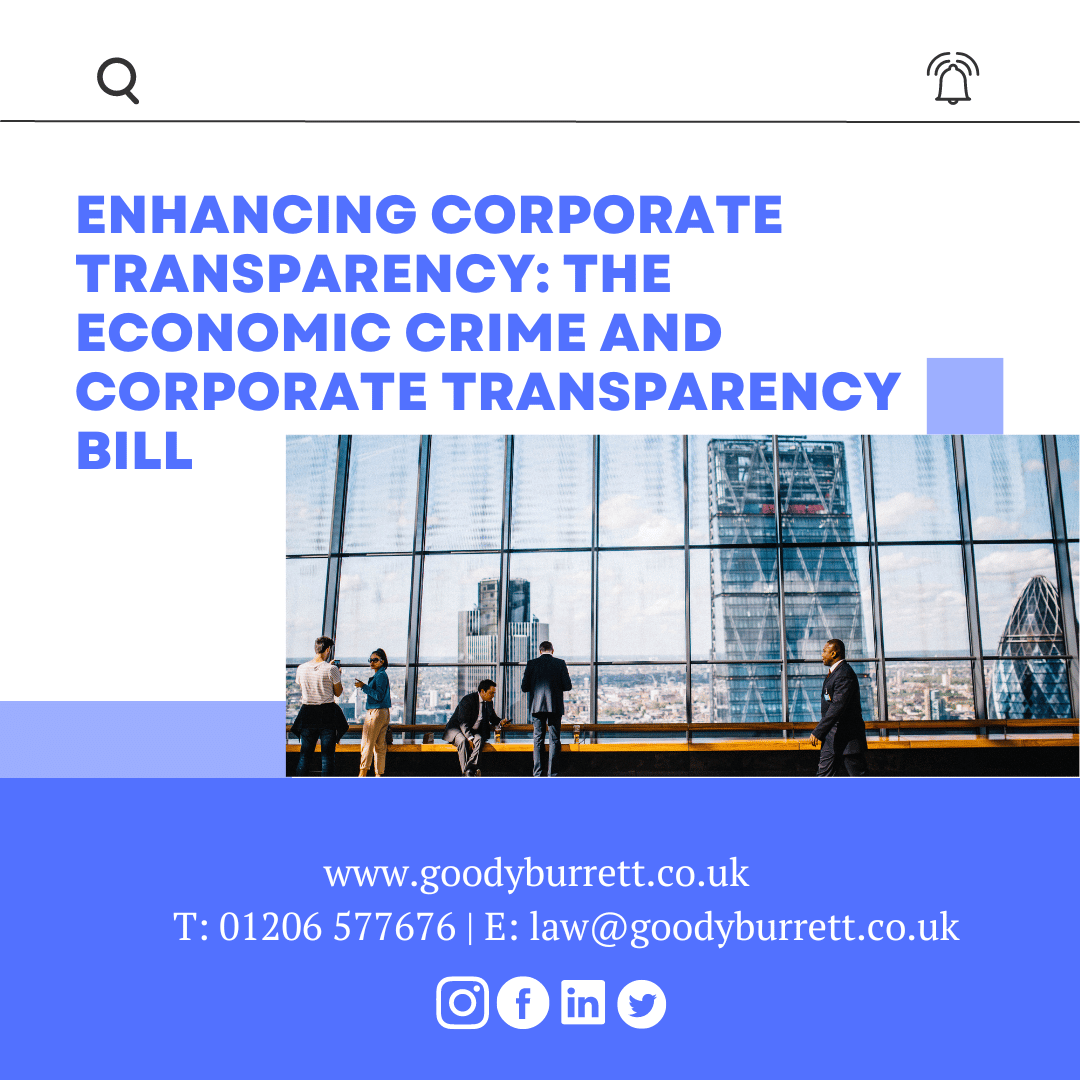Directors, or officers of the company as they are otherwise known, are as important as the shareholders of a company, if not more so. They are responsible for the day-to-day management of the company, and collectively make important decisions at board meetings. They will decide for example whether to employ executive staff or enter into a contract with a third party.
But with great power comes great responsibility and, for this reason, a series of statutory duties are imposed on directors by law under the Companies Act 2006. These duties are owed by the directors to the company rather than to the shareholders themselves. Every director needs to be familiar with these duties, so as not to breach them and risk incurring personal liability.
The duties of a director are as follows:
Duty to act within their powers
A director must act in accordance with the company’s constitution, and only exercise powers for the purposes for which they are conferred. A company’s constitution is widely defined and includes the company’s articles of association. If there are restrictions on how the director must operate contained within a shareholders agreement, the director’s service agreement, the bank mandate, specific board minutes or other company documents, then the director needs to act accordingly.
Whether a director has exercised his powers for the purposes for which they were given is dependent on the facts. A court would decide firstly what was the purpose of the power, and secondly whether the director used the power for that purpose when he exercised it.
Duty to promote the success of the company
A director must act in a way he considers (in good faith and honesty) would be most likely to promote the overall success of the company, including its profitability. A director should take into account the long-term consequences of any decision, the interests of employees, working relationships with customers and suppliers, the impact on the community and the environment, the company’s reputation and the need to act fairly between shareholders.
This is what is known as a subjective test. This means that the court would ask whether the director honestly believed that an action taken by the company would most likely promote the success of the company, rather than whether he should have believed it, or whether the action actually did promote the success of the company.
Duty to exercise independent judgment
A director must act independently in his decision-making. He cannot for example agree with a third party (such as a shareholder, customer or supplier) to vote in a given way at a board meeting. For the avoidance of doubt, this will not prevent a director from taking professional advice, be it legal or financial, but it is for him to decide whether to act upon it.
Duty to exercise reasonable care, skill and diligence
A director must exercise reasonable care, skill and diligence, at a level that would be exercised by a reasonably diligent person with both (a) the general knowledge, skills and experience that may be reasonably expected and (b) the general knowledge, skills and experience that the director actually has (e.g. if he has a particular area, or high level, of expertise).
What may be reasonably expected of the director is again fact-dependent and will vary based on, for example, the size, sophistication and success of the company. Only if the director’s actual knowledge, skills and expertise are higher than those reasonably expected, will he be judged to a higher standard. Directors cannot avoid liability for this duty by simply delegating their responsibilities or being inactive.
Duty to avoid conflicts of interest
This is an important duty, and one that we see directors breach most often. A director must avoid a situation in which he has, or could have, a direct or indirect interest that conflicts, or possibly may conflict, with the interests of the company.
This applies to the exploitation of any information, opportunity or property. An example might be if a director had obtained information by virtue of his being a director, and used this information for his own personal advantage, for example by entering into a contract under his own name, rather than that of the company’s; or buying a property when the company might have invested in it instead. Effectively he is taking advantage of his position to put his interests before those of the company. It is irrelevant if the company first had sight of the business opportunity and for whatever reason declined to act on it.
If a director is in breach of this duty, he will be obliged to account to the company for any profits he makes, unless his actions were authorised by the company (meaning its shareholders, acting by majority). Some directors have tried to circumvent this duty by resigning from their company before exploiting a business opportunity elsewhere. However, such a director may still be liable if the intention to do this can be shown.
Duty not to accept a benefit from third parties
A director must not accept a benefit from a third party that is given by reason of (a) his being a director, or (b) his doing or not doing anything as a director. There will be no breach of this duty if the acceptance of the benefit cannot reasonably be regarded as likely to give rise to a conflict of interest, for example normal corporate hospitality.
As a matter of good practice, companies should also ensure that any benefit received does not amount to an offence under the Bribery Act 2010, as it is punishable by an unlimited fine and up to 10 years’ in prison.
Duty to declare their interest in a proposed transaction or arrangement with the company
A director in any way directly or indirectly interested in a proposed transaction or arrangement with the company must declare the nature and extent of that interest to the other directors. An example of this would be if the company was seeking to purchase land, which the director owned or co-owned. The company would want the lowest price, whereas the director in his personal capacity would seek the highest. This would clearly give rise to a conflict of interest and become problematic. A director must therefore declare his interest as soon as possible, either at a board meeting or in writing. There is another similar provision contained in the Companies Act 2006 whereby a director must declare their interest in an existing transaction or arrangement with the company.
So you can see that there are a number of duties and a common theme to some of them is that the director must not take advantage of the company. A sole director who is also the sole shareholder still owes these duties, even if there are no other shareholders who might object to his taking advantage of the company. Even in that context, his duties become more relevant if the company gets into financial difficulty, so in effect he owes some of these duties to its creditors. Our next blog article will look into this area in more detail.
For further information on directors’ duties, please don’t hesitate to contact our commercial solicitor, David Cammack. Please call 07909 564799 or e-mail [email protected].






